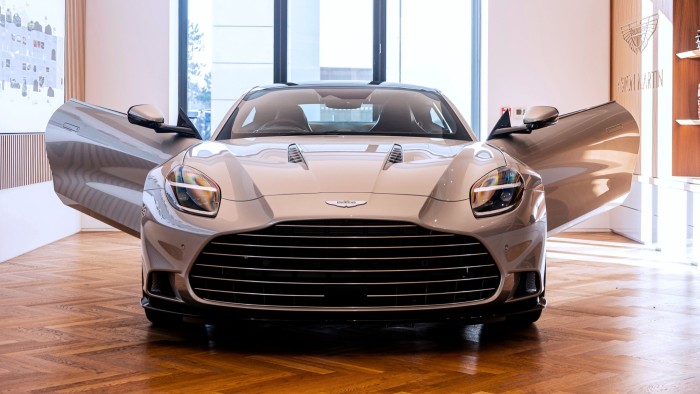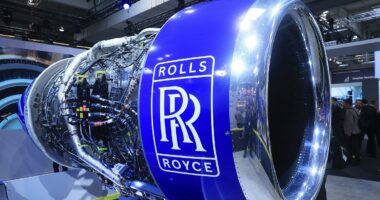Share this @internewscast.com
Unlock the Editor’s Digest for free
Lawrence Stroll, the chairman of Aston Martin, has reportedly held preliminary discussions with Saudi Arabia’s sovereign wealth fund about potentially taking the iconic British luxury carmaker private. This move comes as Aston Martin faces mounting financial challenges and seeks additional funding to counter its growing losses.
According to insiders familiar with the situation, the conversations between Stroll, a Canadian billionaire, and the Public Investment Fund (PIF) are in their initial stages. Notably, PIF already holds a significant 17 percent stake in Aston Martin, making it the company’s second-largest shareholder.
Stroll spearheaded a £540 million rescue plan in 2020, pledging to reinstate Aston Martin as a leading luxury car brand. However, despite his efforts, which included substantial fundraising and leadership overhauls, the company remains burdened by significant debt. This year alone, Aston Martin has been forced to issue two profit warnings as sales continue to decline.
The carmaker’s shares have plummeted by 99 percent since its ill-fated initial public offering on the London Stock Exchange in 2018, underscoring the financial struggles it faces.
In response to inquiries from the Financial Times, Aston Martin stated that it is “not in talks with PIF about being taken private,” attempting to dispel rumors of such discussions.
Earlier this year, Aston Martin raised £52.5mn by selling 75mn new shares to Stroll’s consortium, which increased its stake in the group to 33 per cent from 28 per cent. China’s Geely and Germany’s Mercedes-Benz also own stakes in the carmaker.

Stroll last year brought in Adrian Hallmark as chief executive in the hope that he would replicate the turnaround he engineered at Bentley when he ran the Volkswagen-owned luxury car brand.
Since then, the company has come under pressure from the global trade war unleashed by US President Donald Trump. It issued its second profit warning for the year in early October, also blaming a slower than expected rollout of its hybrid Valhalla supercar model and sluggish demand in China following Beijing’s tax crackdown on the super-rich.
For the July to September quarter, Aston Martin’s operating loss doubled from a year earlier to £56.1mn while its net debt increased 14 per cent to £1.4bn, as the group was hit by US tariffs and weak demand in China. It had a free cash outflow of £415mn for the first nine months of the year.

In an interview in March, Stroll said his additional investment in Aston Martin earlier this year was a demonstration of his “unwavering support” but analysts had questioned whether he was seeking to reduce his exposure owing to the group’s failure to generate steady cash and profits.
PIF has struggled with its other automotive investments. It spent $1bn in US electric-car maker Lucid in 2018 but has been forced to pour in billions more into the start-up as it made heavy losses and burnt cash in developing its vehicles.
Lucid also has a deal to supply its electric vehicle power train and battery systems to Aston Martin, although the launch of the UK carmaker’s first electric car has been pushed back until the early 2030s.
The PIF is seeking to build an EV manufacturing hub in Saudi Arabia as part of the kingdom’s wider plans to diversify its economy away from dependence on oil revenues.
The fund has also signed a deal with China’s Foxconn to launch its own local EV brand called Ceer, and launched a joint venture with Korea’s Hyundai Motor to build cars in the same location at King Abdullah Economic City on the Red Sea coast.
The PIF declined to comment. Stroll did not immediately respond to a request for comment.










